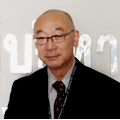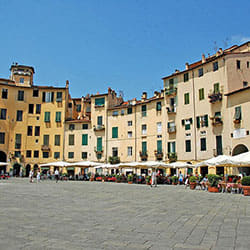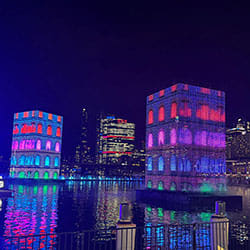Summer is at its peak now in Bangkok. It seems that rainfall has been less than usual this year, producing sensible temperature around 34°C everyday. Last night was a full moon and I enjoyed seafood at a restaurant on the bank of the Chao Phraya River.

- photo1:
- a full casts moon a shadow over the Ciao playa river
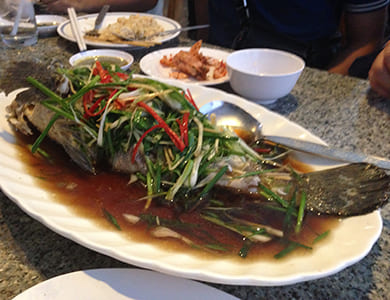
- photo2:
- I eat seafood and overcome heat
It did feel a bit lavish, but without something like this, you just can’t endure the heat here.Well, now into our main subject. Under the Abe Cabinet’s motto of “economic revitalization,” the Ministry of Education in Japan (MEXT) has been implementing a variety of programs for the globalization of students. One such program is the short-term training or internship in Southeast Asian countries. Through this program, many Japanese students are coming to Thailand during summer vacation.In support of these activities, quite a few Japanese universities have set up offices in Bangkok. As of the end of June, 37 Japanese universities have established their offices in Bangkok, and 2 more are currently planning to open their offices. These include 19 national, 16 private and 2 public universities as well as technical colleges.
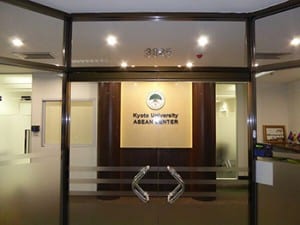
- Photo3:
- Kyoto University ASEAN Research Center (Entrance)
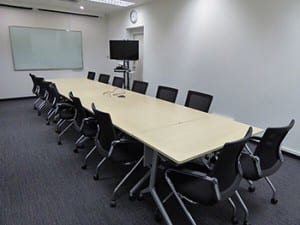
- Photo4:
- Kyoto University ASEAN Research Center (Meeting room)
Most of these schools use office space rented from universities in Thailand, but some have offices of their own in the city. Although the main purposes of these offices have to do with admission of students from abroad and dispatching of Japanese students, some offices are intended for the promotion of research. Recently, the University of Electro-Communications (UEC) has established an office inside the Knowledge Exchange building owned by King Mongkut’s University of Technology Thonburi.
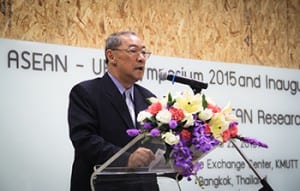
- Photo5:
- Senior Vice Minister of Education of greetings at the opening of UEC
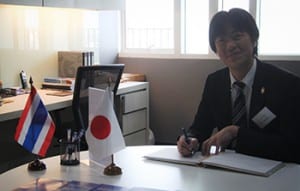
- Photo6:
- Terashima First Secretary of the Japanese Embassy to sign with UEC office
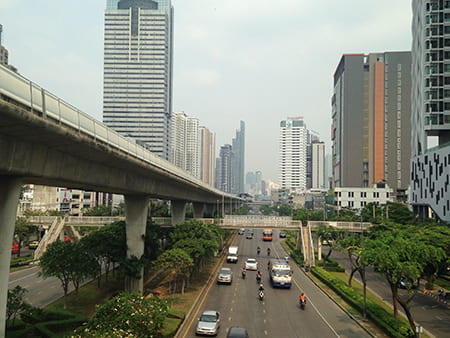
- photo7:
- Knowledge exchange building University of Thailand have made(Building there is a vermilion line in the center right)Left elevated railway
This year in January, the Japanese University Network in Thailand (“JUNThai”) was organized for the purpose of introducing activities and sharing information related to common challenges between these universities making advancement into Thailand. The Embassy of Japan in Thailand, Japan Society for the Promotion of Science Bangkok Office and JICA’s ASEAN Engineering Education Development Network Project Office are also participating as observers. The name “JUNThai” is taken from “JUNBA” (Japanese University Network in the Bay Area), a committee for Japanese universities making advancement into the San Francisco area of the U.S. A plan for inviting concerned persons of Thailand’s Ministry of Education for a seminar every three months is currently underway.If anyone is interested in Thailand’s universities, a list of universities can be found on the Japan Society for the Promotion of Science Bangkok Office website (
http://jsps-th.org/japanese_univ/). I would also recommend getting in contact with a “JUNThai” member university.















